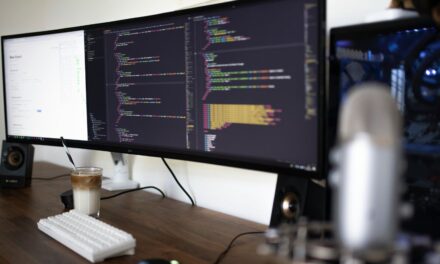The role of cybersecurity in a remote work culture is to act as the foundational pillar of trust and the primary enabler of a secure, flexible, and productive “work-from-anywhere” environment.
As of September 5, 2025, with remote and hybrid work now deeply embedded in the business landscape here in Rawalpindi and across Pakistan, cybersecurity is no longer just a set of technical controls managed by the IT department. It has evolved into a core component of corporate culture—a shared responsibility that is essential for the entire model to function.
1. Shifting the Perimeter from the Office to the Person
In the traditional office-centric model, security was based on a physical location. You were “safe” because you were inside the office’s secure network. Remote work completely destroyed this model.
- The New Reality: The security perimeter is no longer the office building; it is the individual employee, wherever they may be. Each remote worker is now the frontline defender of the company’s data.
- The Role of Cybersecurity: Cybersecurity provides the framework and tools to secure this new, decentralized perimeter. This is where the Zero Trust philosophy becomes a cultural touchstone. The culture must shift from “we trust you because you are in the office” to “we trust you because we can verify your identity and the security of your device, no matter where you are.”
2. Cybersecurity as the Foundation of Trust
A successful remote work culture is built on a high degree of trust between the employer and the employee. Cybersecurity is what makes this trust possible.
- The Challenge: Employers need to trust that their employees can access sensitive corporate data from their homes without exposing the company to a breach. Employees need to trust that the company is providing them with the tools and knowledge to do so safely.
- The Role of Cybersecurity: A strong, well-communicated cybersecurity program builds this mutual trust.
- It gives leadership the confidence to offer flexible work arrangements, knowing that robust security controls (like Multi-Factor Authentication (MFA) and Endpoint Detection and Response (EDR)) are in place.
- It gives employees the confidence that they can work productively without fear, knowing they are protected and have a clear process to follow if they encounter a threat.
3. Enabling Freedom and Flexibility, Responsibly
The great promise of remote work is the freedom and flexibility it offers. Cybersecurity is the guardrail that ensures this freedom doesn’t turn into chaos.
- The Challenge: The freedom to use different devices and networks can introduce significant security risks if not managed.
- The Role of Cybersecurity: The goal of a modern cybersecurity program is not to restrict flexibility, but to enable it safely.
- Instead of a blanket ban on personal devices, a modern culture uses Mobile Device Management (MDM) solutions to create a secure, encrypted container for work data on a personal phone.
- Instead of forbidding work from a café, the culture promotes the mandatory use of a VPN to secure the connection. Cybersecurity, in this context, is about providing the tools and setting the clear boundaries that allow employees to enjoy the benefits of remote work without putting the company at risk.
4. Building the “Human Firewall”: A Shared Responsibility
Ultimately, the most important role of cybersecurity in a remote work culture is to transform every employee into an active participant in the company’s defense.
- The Challenge: In a remote setting, employees are more isolated and can be more susceptible to social engineering and phishing attacks.
- The Role of Cybersecurity: The culture must shift from a passive model, where employees see security as “someone else’s job,” to an active one of shared responsibility.
- This is achieved through continuous, engaging security awareness training that is specifically tailored to the risks of remote work.
- It involves creating a “no-blame” reporting culture, where an employee who accidentally clicks on a suspicious link feels safe and is encouraged to report it immediately, knowing they will be supported, not punished.





